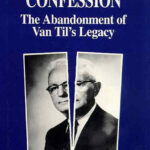
Don’t Plant Churches, Build Covenant Communities
Don’t Plant Churches, Build Covenant Communities
Written by
Narrated by Shelby Luke
Read the article Don’t Plant Churches, Build Covenant Communities

Martin Selbrede
Martin Selbrede
Written by
Bill visits with Martin Selbrede, scientist, musical composer, theologian and Vice President of the Chalcedon Foundation, and Editor of Faith For All of Life Magazine. They discuss the Doctrine of Work, and man as the Imago Dei, Reconstruction and a multigenerational emphasis eg. Cathedral Building, Group vs Individual Justice, medical tyranny and Johann Sebastian Bach.

Appendix 10: The Covenant Structure of the Thirty-Nine Articles
Appendix 10: The Covenant Structure of the Thirty-Nine Articles
Written by Ray Sutton

#27: The Meat of the Word Q&A
#27: The Meat of the Word Q&A
Written by

Does New Always Mean New?
Does New Always Mean New?
Written by
In this episode we will take on the meaning behind some from very distinct passages regarding the “new” command, the “new” covenant and the “new” creation.

APPENDIX A – The Eschatology of Dominion: A Summary
APPENDIX A – The Eschatology of Dominion: A Summary
Written by David Chilton

21: Samuel’s Ghost, Shemitah Blood Moons, and Persecution
21: Samuel’s Ghost, Shemitah Blood Moons, and Persecution
Written by
This week we start off talking about the false prophet John Hagee and the blood moons, the shemitah, and even necromancy regarding Samuel’s ghost. After that we set John loose to preach on persecution from Acts. It’s a great summary to the topic after discussing it a couple weeks ago.
- American Vision’s The Shemitah Myth Exposed
- Last Days Madness, Gary DeMar
- John’s Sermon on Persecution
- The Apology of Tertullian for the Christians
- Reconstructionist Radio

Part 3: Conclusion – Gary DeMar
Part 3: Conclusion – Gary DeMar
Written by Gary North and Gary Demar

Appendix 9: Covenant By the Spirit (New Covenant Sacraments)
Appendix 9: Covenant By the Spirit (New Covenant Sacraments)
Written by Ray Sutton

Westminster’s Confession: The Abandonment of Van Til’s Legacy
Written by Gary North
WESTMINSTER’S NEGATIVE CONFESSION
In the final days of October, 1990, the long-predicted book by the faculty of Westminster Theological Seminary finally appeared: Theonomy: A Reformed Critique. In response come Westminster’s Confession. It is both a negative and a positive statement. Theonomists believe that “you can’t beat something with nothing.” It is not enough to demonstrate that someone is wrong; you must also show what is correct.
Cornelius Van Til made this principle the bedrock application of his apologetic method. It was not enough to demonstrate that his opponents’ systems of thought were internally inconsistent; he also showed why Christianity is the only logical alternative. But he left an incomplete legacy. He refused to offer an explicitly biblical alternative to the natural law theory that he had refuted. His system created a judicial vacuum.
Into that vacuum have come two rival factions: the political pluralists and the theonomists. The battle is now engaged.
Westminster Seminary’s problem for a generation – indeed, Calvinistic American Presbyterianism’s problem for two centuries – has been to justify a commitment to modern religious and political pluralism in terms of the Westminster Confession’s judicial standards. The faculty has been double-minded on this point:
Proclaiming their commitment to Van Til’s apologetic method, they have simultaneously denied the idea that the Bible is the bearer of biblical blueprints or judicial frameworks for society. In short, they have abandoned any ideal of a Christian society, i.e., Christendom itself.
This is Westminster’s social and cultural confession – a Theologically negative confession, proclaiming in the name of the original Westminster Assembly what society ought not to be, but never daring to suggest what it should be. In contrast, Westminster’s Confession offers a positive confession. It offers a biblical alternative. It restores the vision of Christendom.
